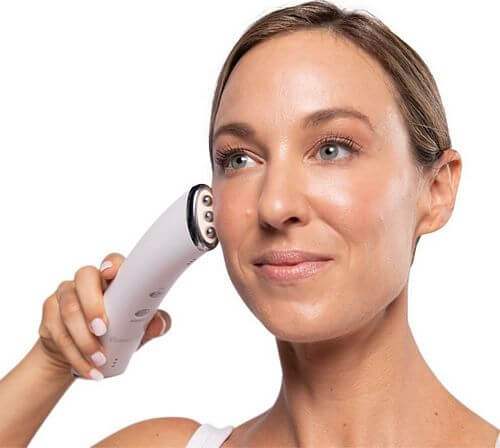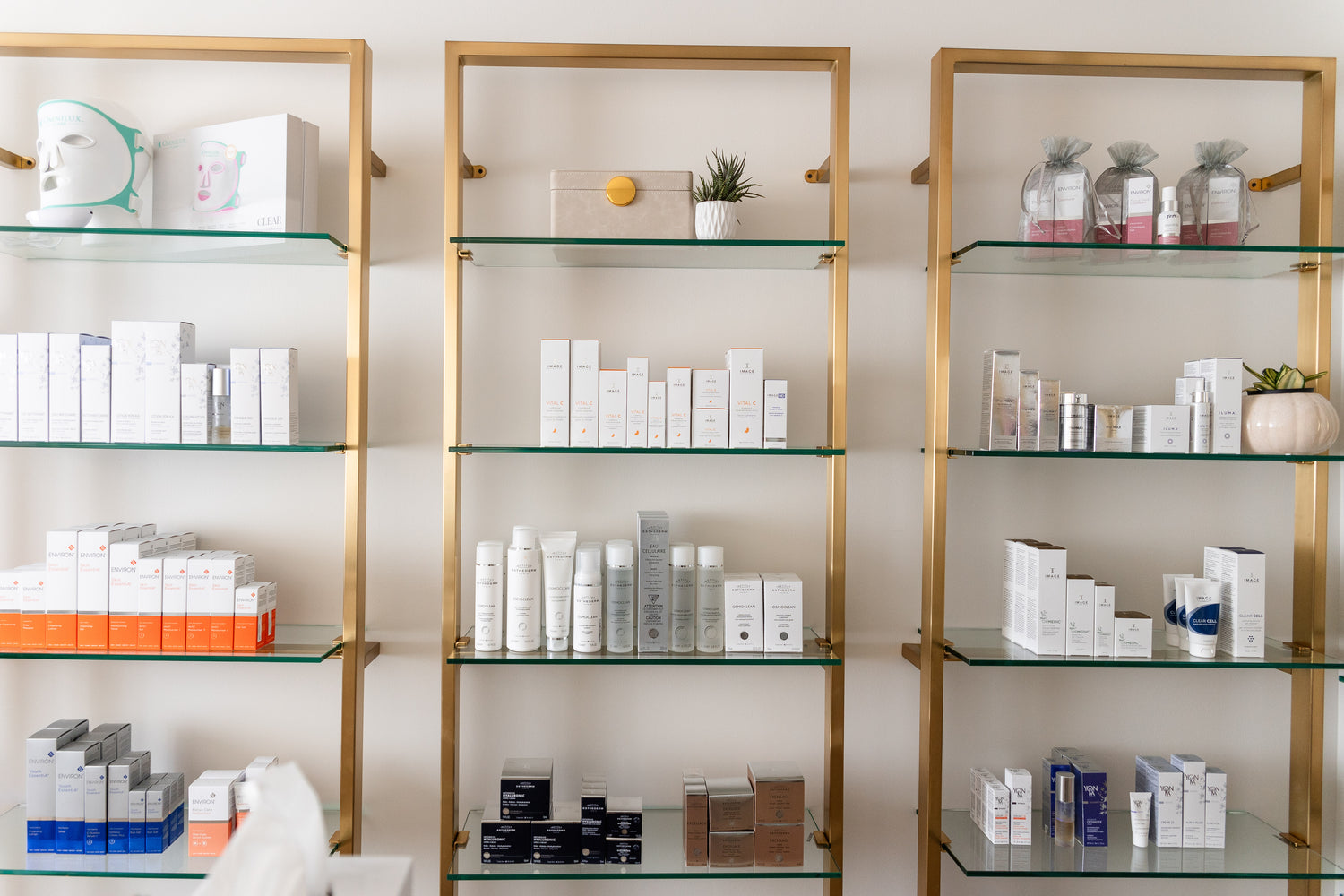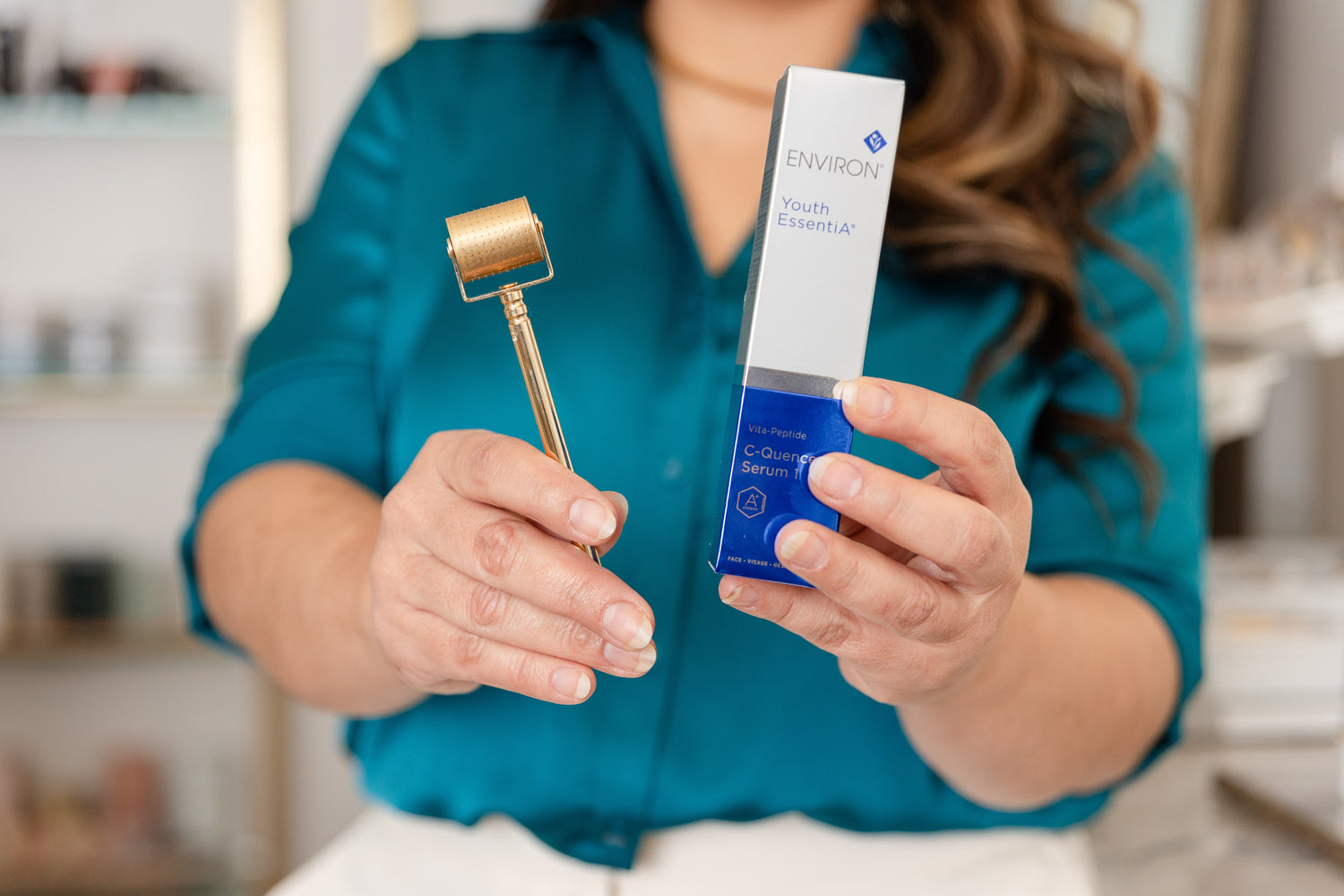I like to think of exfoliating as a way to hit the reset button on our skin - similar to restarting your computer. We’re all guilty of having too many tabs open at once and rebooting clears up memory and stops background tasks that are slowing down your computer. Rebooting your computer helps to keep it running smoothly. In that same vain, exfoliation is the process of removing dead skin cells from the outer layer of skin and is considered one of the most important steps in skincare.
Why Exfoliate?
We naturally shed dead skin cells all the time, but as we age that process slows down. This can result in dull, dry, rough textured skin, clogged pores, breakouts and uneven skin tone. Exfoliation counteracts these conditions to reveal a more radiant, smoother and healthier complexion - skin is also better able to absorb subsequent high performing skincare products.
Types of Exfoliants
Generally, there are two categories of exfoliants - physical and chemical. Physical exfoliants, such as scrubs or a cleansing brush, manually buffs away dead skin cells on the surface of the skin. Chemical exfoliants rely on ingredients, like enzymes, alpha or beta hydroxy acids, to breakdown the bonds that hold dead skin cells together, allowing them to be easily removed.
| Type | Exfoliant | Description | Skin Type/Condition |
| Chemical | AHAs | Alpha hydroxy acids (lactic, glycolic, mandelic, malic are water soluble chemical ingredients that work to dissolve dead skin cells. | Dry, dehydrated, uneven skin tone, pigmented, lines & wrinkles, oily, combo & acne prone. |
| Chemical | BHAs | Beta hydroxy acids (salicylic acid) are oil soluble chemical ingredients that work inside pores to balance oil production, remove dead cells and fight acne causing bacteria. | Oily, combo, acne prone & enlarged pores. |
| Chemical | Enzymes | Papain & bromelain | All skin types & conditions, particularly sensitive & pregnant. |
| Physical | Scrubs | Sugar, salt, pumice | Be careful when using scrubs on the face. Make sure the scrub particles are specifically formulated to work gently. |
| Physical | Dermaplaning | A tool that remove the very outer most layer of dead skin cells & vellus hair. | Great for all skin types, but those with active acne should wait until lesions are healed. |
How & How Often To Exfoliate?
How (physical vs chemical) and how often you exfoliate is largely determined by your skin type and the skin concerns that you are trying to address. My general guideline is:
| Sensitive Skin | once a week |
| Dry Skin | 1-2 times/week |
| Normal/Combination Skin | 2-3 times/week |
| Oily/Acne-Prone Skin | 3-4 times/week |
Any and all exfoliants can be sensitizing, depending on the product's formulation, strength and your skin type and conditions. It's always best to test an exfoliant, go slow & build up to more regular use, if needed.
For sensitive skin, I usually recommend a chemical exfoliant in the form of an enzyme. Sensitive skin types already have an impaired barrier function and typically cannot tolerate scrubs that may aggravate. Enzymes work to dissolve the glue that binds dead skin cells together and "digest" them.
For dry skin, I like a chemical exfoliant such as glycolic acid (which falls in the broader category of alpha hydroxy acids/AHAs). Glycolic acid is especially ideal for dry skin types because -
- Its smaller molecular structure allows for easier and deeper absorption.
- Its a humectant, so it has the chemical ability to draw moisture to itself.
Normal/combination skin types can generally tolerate either chemical or physical exfoliants. So the selection of an exfoliant may be based on personal preference (texture or scent), lifestyle (ease of use) or treating a specific skin concern (pigmentation).
For oily or acne-prone skin types, I prefer a chemical exfoliant formulated with salicylic acid (which falls into the broader category of beta hydroxy acids/BHAs). BHAs not only work to exfoliate surface dead skin cells, they have the ability to penetrate and exfoliate the pore lining, critical in combating clogged pores.
Whether you choose a chemical or physical exfoliant, a leave-on or wash-off formulation or a multi-purpose exfoliant (ie double duty cleansers, overnight masks) can be dependent on a number of considerations. As with most skincare products, sometimes you simply have to test out different ones to see which is best suited for your skin.
Can You Over-Exfoliate?
There is such a thing as too much of a good thing, especially when it comes to exfoliation. Over exfoliating can sensitize skin or even damage the skin's natural barrier function, leaving the skin in a weaker state.
There's no doubt that exfoliation is tied to skin health, but selecting the appropriate exfoliant and properly (and consistently!) using it are key.
Which Type of Exfoliation is Right For You?
That's this week's homework - download here.






